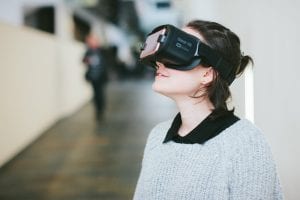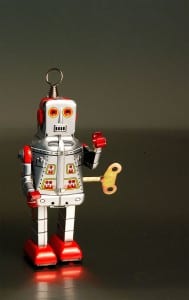UCL Computer Science hosts the founder of virtual reality
By uczruld, on 13 November 2017
 Last week, UCL Computer Science hosted Jaron Lanier of Microsoft Research, who coined the term “virtual reality” and founded one of the first companies to create and sell virtual reality equipment.
Last week, UCL Computer Science hosted Jaron Lanier of Microsoft Research, who coined the term “virtual reality” and founded one of the first companies to create and sell virtual reality equipment.
To an at-capacity lecture theatre, Lanier, who was in London to promote his latest book: Dawn of the New Everything: A Journey through Virtual Reality, described how he started as a computer scientist and what it was like in the earliest days of VR. The lecture left off from the content of his book, which he described as “part memoir, part introduction to VR”.
While Lanier was keen to emphasise his ambitions towards a utopic vision when he started thinking about VR, he also emphasised the capacity that exists within the medium for terror, and how VR could be used in awful ways. For this reason, he structured his talk as a “thesis, antithesis, and synthesis”: putting forward his initial dream-like impetus for thinking about VR, the problematic potential it has for it to go awry, and concluding with a synthesis of his arguments containing some suggestions for how we should move forward.
 Close
Close


 On Thursday 22 October, UCL Honorary Professor, Richard Susskind OBE and his son Daniel Susskind, a lecturer in economics at Oxford, launched their new book, ‘The Future of the Professions’ which examines how technology is transforming the work of human experts.
On Thursday 22 October, UCL Honorary Professor, Richard Susskind OBE and his son Daniel Susskind, a lecturer in economics at Oxford, launched their new book, ‘The Future of the Professions’ which examines how technology is transforming the work of human experts.
